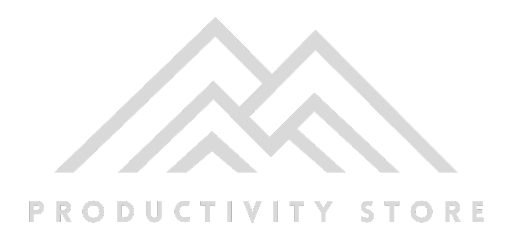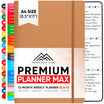Setting the Stage for Success
Setting goals is an essential part of personal and professional growth. However, merely setting goals is not enough; tracking your progress and staying committed to your objectives are equally crucial. Effective goal tracking ensures that you stay on course and make meaningful strides toward your desired outcomes.
In this article, we will explore the top tips for effective goal tracking. From creating a clear roadmap to celebrating milestones, these strategies will empower you to take charge of your progress and achieve success with ease. So, let's dive in and discover how to supercharge your goal tracking efforts!
Top Tips for Effective Goal Tracking
Tracking your goals can be a game-changer when it comes to achieving success. By implementing the following tips, you can enhance your goal tracking process and maximize your chances of reaching your targets.
- Set Specific and Measurable Goals
To effectively track your progress, start by setting clear and specific goals. Vague aspirations make it difficult to gauge your progress and determine whether you're on the right track. Ensure your goals are measurable so that you can track your advancement and identify areas for improvement. For example, instead of saying, "I want to exercise more," specify a goal like, "I will go for a 30-minute jog five days a week."
- Break Goals into Milestones
Divide your goals into smaller, manageable milestones. This approach allows you to track progress more frequently and experience a sense of accomplishment along the way. As you achieve each milestone, you gain momentum and motivation to keep going. Remember, success is a series of small wins that lead to significant achievements.
2.1 Milestone Example: Aiming for Weight Loss
Suppose your goal is to lose 20 pounds in six months. Breaking it down into smaller milestones can look like this:
1 Milestone 1: Lose 5 pounds in the first month.
2 Milestone 2: Reach 10 pounds lost by the third month.
3 Milestone 3: Achieve 15 pounds lost by the fifth month.
4 Milestone 4: Accomplish the ultimate goal of 20 pounds lost by the end of six months.
- Create a Visual Tracker
Visualize your progress by creating a visual tracker that reflects your goals and milestones. This can be a physical chart on your wall, a digital spreadsheet, or a mobile app. By visualizing your progress, you maintain a clear perspective on how far you've come and how much further you need to go. Consider color-coding your tracker to make it even more engaging and visually appealing.
- Use Technology to Your Advantage
Leverage technology to streamline your goal tracking process. Numerous apps and software solutions are available to help you set and monitor your goals effectively. These tools often provide reminders, progress updates, and data analysis to keep you motivated and informed. Find a digital companion that aligns with your needs and preferences to enhance your goal tracking experience.
- Track Habits and Actions
Goals are achieved through consistent habits and actions. As you track your progress, pay attention to the habits and actions that contribute to your success or hinder your advancement. For example, if your goal is to write a book, track the number of words you write each day or the time you spend on research. Identifying patterns and making adjustments will optimize your progress and help you stay on track.
- Regularly Review and Reflect
Schedule regular review sessions to assess your progress and reflect on your goals. These moments of self-reflection allow you to analyze what's working and what needs adjustment. Celebrate your accomplishments and identify areas where you can improve. Use this time to make any necessary modifications to your action plan or milestones to ensure continued progress.
- Stay Accountable
Accountability plays a vital role in effective goal tracking. Find an accountability partner, whether it's a friend, family member, or colleague, who can support and motivate you throughout your journey. Share your goals and progress with them, and schedule regular check-ins to discuss your achievements and challenges. Their encouragement and feedback can help you stay focused and motivated.
- Embrace Flexibility
While setting specific goals and milestones is crucial, it's essential to remain flexible and adaptable. Life is unpredictable, and circumstances may change along the way. Be open to adjusting your goals or timelines if necessary. Remember that the ultimate objective is progress, and sometimes that requires adapting to new situations or insights.
- Stay Persistent
Goal tracking is a long-term commitment, and it's easy to lose motivation or become discouraged when faced with obstacles or setbacks. However, persistence is key to overcoming challenges and achieving success. Stay focused on your long-term vision and remind yourself of the reasons behind your goals. Embrace perseverance and see setbacks as opportunities for growth and learning.
- Celebrate Milestones
Celebrate your achievements along the way. When you reach a milestone or accomplish a significant step, take the time to acknowledge and reward yourself. Celebrating milestones provides positive reinforcement and boosts motivation. Treat yourself to something you enjoy or engage in a meaningful celebration that aligns with your goals.
FAQs about Effective Goal Tracking
FAQ 1: How often should I track my goals?
It's recommended to track your goals regularly to ensure you stay on track. Depending on the nature of your goals, weekly or monthly check-ins may be sufficient. However, more frequent tracking, such as daily or bi-weekly, can provide a more detailed overview of your progress.
FAQ 2: What if I'm not making progress?
If you find yourself struggling to make progress, assess your approach and identify potential obstacles. Evaluate whether your goals are realistic and adjust them if necessary. Seek support from a mentor or coach who can provide guidance and help you overcome challenges.
FAQ 3: How can I stay motivated throughout the goal tracking process?
Maintaining motivation can be challenging, but there are strategies to help you stay inspired. Set smaller, achievable milestones to experience regular wins. Find ways to make the journey enjoyable, such as gamifying your progress or rewarding yourself along the way. Surround yourself with positive and like-minded individuals who can provide support and encouragement.
FAQ 4: What if my goals change during the tracking process?
Goals can evolve as you progress, and it's essential to remain adaptable. Embrace any shifts or changes that align with your current priorities or circumstances. Reevaluate your goals and create new milestones accordingly to ensure continued progress.
FAQ 5: How can I track intangible goals, such as personal growth or happiness?
While intangible goals may not have concrete measurements, you can still track your progress by focusing on specific indicators. Keep a journal to reflect on your personal growth or happiness levels regularly. Record instances where you feel you've made strides or experienced moments of fulfillment.
FAQ 6: Can I use goal tracking for professional development?
Absolutely! Goal tracking is highly effective for professional development. Set career-related goals and track your progress to enhance your skills, achieve promotions, or accomplish specific milestones in your chosen field.
Conclusion: Stay on Track and Achieve Your Goals
Effective goal tracking is the key to achieving success in various aspects of life. By implementing the top tips mentioned above, you can enhance your goal tracking process and increase your chances of reaching your desired outcomes. Remember, effective goal tracking involves setting specific and measurable goals, breaking them down into milestones, creating visual trackers, leveraging technology, tracking habits and actions, regularly reviewing and reflecting, staying accountable, embracing flexibility, staying persistent, and celebrating milestones.
As you embark on your goal tracking journey, keep in mind that progress may not always be linear. There will be ups and downs, obstacles to overcome, and lessons to learn. Embrace the process and remain committed to your objectives. Celebrate even the smallest victories along the way, as they contribute to your overall progress and motivation.
And for all your productivity needs, don't forget to visit the Productivity Store. With a wide range of tools, resources, and solutions, the Productivity Store can support you in your goal tracking endeavors and help you maximize your productivity.
In conclusion, effective goal tracking is a powerful tool for personal and professional growth. By implementing the top tips discussed in this article, you can stay on track, measure progress, and achieve success with ease. So set your goals, track your progress, and celebrate your accomplishments. Remember, success is within your reach when you actively engage in effective goal tracking.























Leave a comment
All comments are moderated before being published.
This site is protected by hCaptcha and the hCaptcha Privacy Policy and Terms of Service apply.